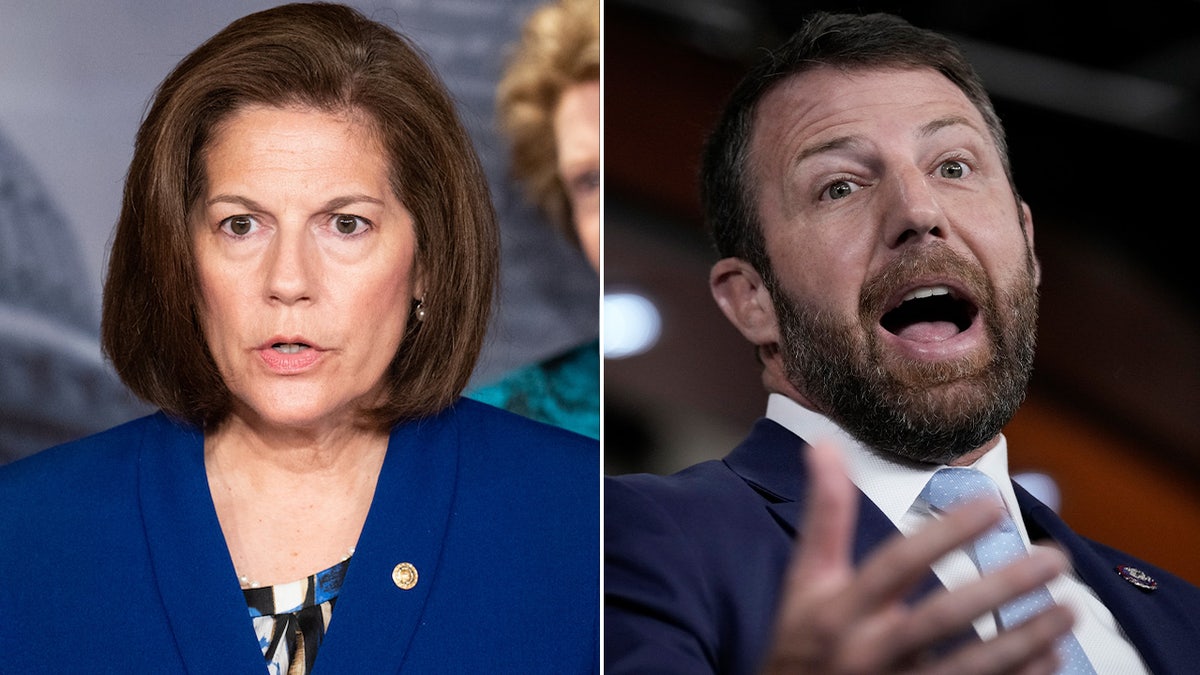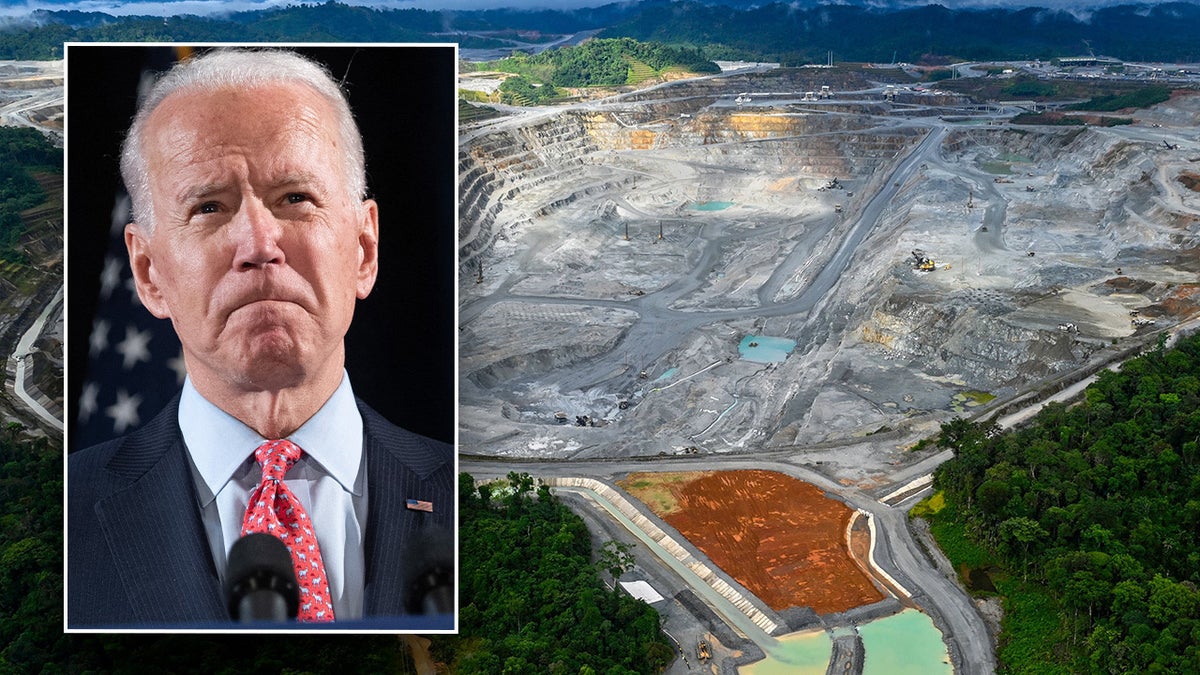The electric vehicle agenda can't advance without China: Russ Vought
Trump-era OMB Director Russ Vought joins 'Fox & Friends First' ahead of congressional lawmakers' upcoming meeting with Ford and GM to discuss their reliance on China.
FIRST ON FOX: Democratic Sen. Catherine Cortez Masto of Nevada and Sen. Markwayne Mullin, R-Okla., are introducing legislation to fortify the domestic production of supplies vital for green energy, defense and consumer technologies.
The Rare Earth Magnet Production Tax Credit Act would particularly aim to shore up the domestic supply chain for rare-earth magnets, a key component for electric vehicles (EV), defense technology, computers and cell phones. While roughly 14% of the world's rare earths were mined in the U.S. last year, according to federal data, 70% were mined in China which controls 90% of global magnet production.
"We can’t keep relying on China for components we need to power our defense systems and drive our clean-energy economy," Cortez Masto said in a statement shared with Fox News Digital.
"Over 600 Nevadans already work in the rare-earth mining industry, and my commonsense legislation will help build a domestic supply chain for the recycling and manufacturing of rare-earth magnets, protecting our national security and creating thousands more jobs right here in the U.S.," she continued.
BIDEN ADMIN ECO RULE CURBING OIL DRILLING, MINING FACES WIDESPREAD OPPOSITION

Sens. Catherine Cortez Masto, D-Nev., left, and Markwayne Mullin, R-Okla., right, introduced the Rare Earth Magnet Production Tax Credit Act on Thursday. (Getty Images)
Under the legislation, the federal government would provide a $20 per kilogram production tax credit for magnets that are manufactured in the U.S. and a larger $30 a kilogram credit for magnets manufactured in the U.S. and which contain components domestically produced, recycled or reclaimed.
Republican Chief Deputy Whip Guy Reschenthaler, R-Penn., and Rep. Eric Swalwell, D-Calif., introduced companion legislation in the House.
NEVADA GOVERNOR BLASTS BIDEN FOR LOCKING UP MINERAL-RICH LAND: 'A HISTORIC MISTAKE'
The bill comes as the U.S. continues to aggressively push for greater production of EVs to achieve the Biden administration's aggressive green energy goals. President Biden is pursuing an objective of ensuring 50% of all vehicle sales are electric by 2030, while several states, including California, have finalized regulations mandating only EVs are available for purchase by 2035.
According to the International Energy Agency, while traditional gas-powered cars require around 40 kilograms of minerals, mainly copper and manganese, EVs require more than 200 kilograms of minerals, including copper, lithium, nickel, manganese, cobalt, graphite and rare earths.

President Biden's administration is taking heat over mining measures. (Getty Images)
But, despite large reserves across the U.S., environmental regulations have largely prevented American producers from mining and producing such minerals. Cortez Masto and fellow Democratic Nevada Sen. Jacky Rosen have called for greater mineral production and were critical of a Biden administration report in September recommending regulations that they said would make it harder to bring new mining projects online.
"Mining and processing rare earths domestically is important, but that alone still leaves our supply chain vulnerable," James Litinsky, the chairman and CEO of MP Materials, said in a statement Thursday. "American industry must convert these essential materials into the permanent magnets that are utilized in components across our economy, including for national security applications."
"This bipartisan legislation is a crucial step towards leveling the competitive playing field," Litinsky added. "It will catalyze private investment to address the very critical gap in our supply chain that previous policies have overlooked."
CLICK HERE TO GET THE FOX NEWS APP
MP Materials operates Mountain Pass, the nation's only rare-earth mine, which is located 50 miles southwest of Las Vegas. Since there is a nonexistent manufacturing capacity for the minerals produced at the site, the company is forced to export its minerals.
Cortez Masto's legislation seeks to support MP Materials and other firms engaged in the mining business.






